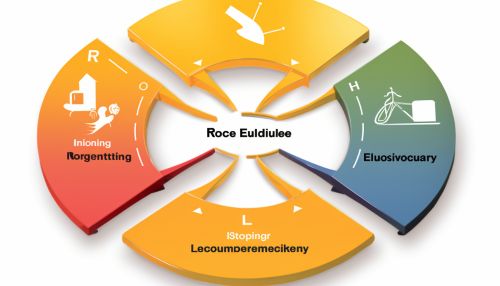Kolb's Learning Styles
Introduction
Kolb's Learning Styles are a set of theories proposed by educational psychologist David Kolb that classify the different ways in which people learn. These theories are based on Kolb's experiential learning model, which suggests that learning is a process that involves four stages: concrete experience, reflective observation, abstract conceptualization, and active experimentation.


Overview
Kolb's Learning Styles are divided into four distinct categories: Diverging, Assimilating, Converging, and Accommodating. Each of these learning styles is associated with two stages of the experiential learning cycle and represents a different way of processing and interpreting experiences.
Diverging
Diverging learners prefer to observe rather than take action, and they are capable of looking at situations from multiple perspectives. They are associated with the concrete experience and reflective observation stages of the experiential learning cycle.
Assimilating
Assimilating learners are most comfortable with abstract concepts and logical thought. They are associated with the reflective observation and abstract conceptualization stages of the experiential learning cycle.
Converging
Converging learners are adept at solving problems and making decisions by applying theories to practical situations. They are associated with the abstract conceptualization and active experimentation stages of the experiential learning cycle.
Accommodating
Accommodating learners are hands-on, preferring to learn through trial and error. They are associated with the concrete experience and active experimentation stages of the experiential learning cycle.
Applications
Kolb's Learning Styles have been applied in various fields, including education, psychology, and business. In education, understanding a student's learning style can help educators tailor their teaching methods to better suit the student's needs. In psychology, these learning styles can provide insight into a person's cognitive processes and personality traits. In business, understanding an employee's learning style can help managers assign tasks that align with the employee's strengths, leading to increased productivity and job satisfaction.
Criticisms
Despite its widespread use, Kolb's Learning Styles theory has been subject to criticism. Some researchers argue that the theory oversimplifies the learning process and fails to account for the complexity and diversity of learning styles. Others question the validity of the learning styles assessment tools developed by Kolb, suggesting that they may not accurately measure a person's learning style.
Conclusion
While Kolb's Learning Styles theory has its critics, it remains a popular and influential model in the field of education and psychology. By providing a framework for understanding how different people learn, it offers valuable insights for educators, psychologists, and managers alike.
